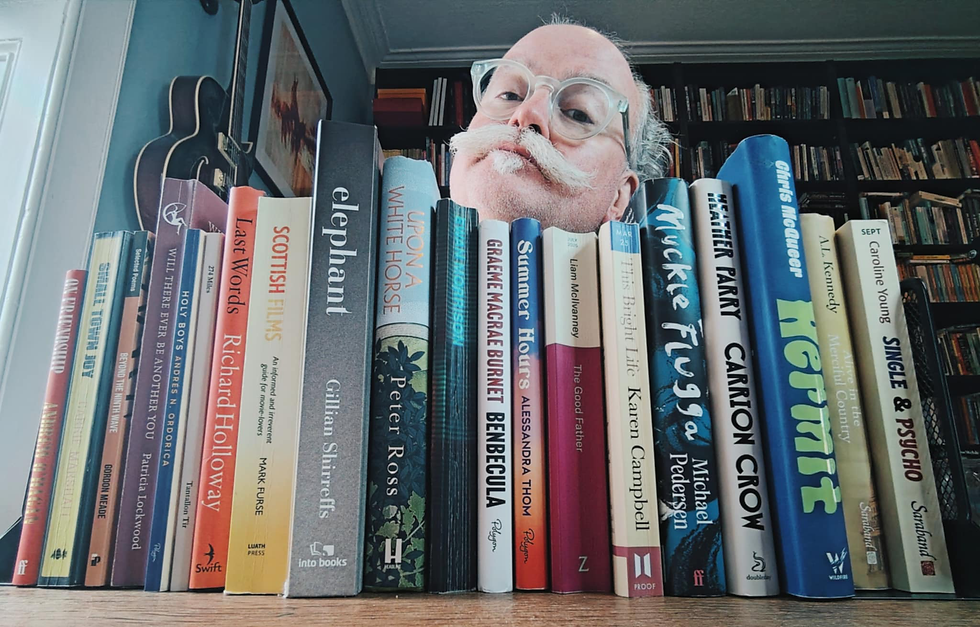Account of Banks.
- Alistair Braidwood

- Sep 29, 2009
- 2 min read
I mentioned in a previous post that every new Iain Banks’ novel is heralded as a return to form (see Transmitting Transition ). Such claims can lead to disappointment but this time, with his latest work Transition, the hype is justified. In a sense Banks is cheating by claiming this as a mainstream novel as if it is not strictly science fiction, then it is at least fantasy. But he makes the rules so he’s entitled to break them. Banks has previously blurred the lines between his mainstream and science fiction writing in Walking on Glass and The Bridge, and it would be churlish to criticise him for that.
Transition is almost like a greatest hits novel, dealing with favourite themes of sex, death, politics, morality and personal responsibility. Banks is one of the most nakedly moralistic writers at work today, but where some readers may view this as problematic I think it is his indignant, barely concealed, anger that makes his writing exciting. However his writing is most successful when the anger is woven into the story rather than simply placed in the mouths of characters. Banks works best when he shows instead of tells. By his own admission he is prone to railing at the world through his novels, and The Steep Approach to Garbadale and Dead Air are two recent examples where the desire to express his world view overshadows plot, character and story.
I suppose that that if you are a fan of Iain Banks you’ll read Transition, and if you’re not then I don’t think this is the novel to win you over. But if you haven’t read anything for a while, perhaps since his critical heyday of The Bridge, or commercial peak of The Crow Road, then this would be a good place to renew an old acquaintance. You could call it a return to form.









Comments